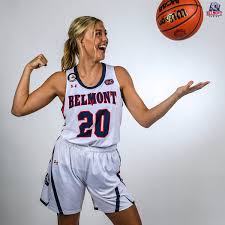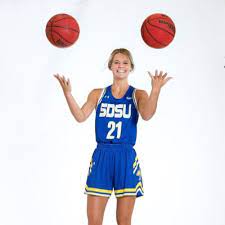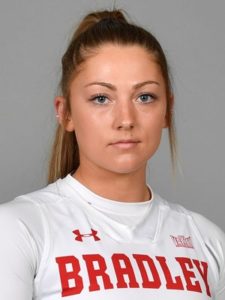Many good American players have had great success overseas and 1 of the best was Willie Sojourner. After being named All-Big Sky at Weber State for 3 straight years from 1969-1971 and almost winning the high jump event at the 1970 NCAA Men’s D-1 Outdoor Track and Field Championships, he was drafted by the Virginia Squires in 1971. He spent several years in the ABA and won a title in 1974 with the New York Nets, then headed abroad in 1976 and became 1 of the best American players in the history of the Italian League. Willie died in a car accident in 2005 but HoopsHD’s Jon Teitel got to chat with Don Spainhower (former Weber State radio broadcaster/SID) and Phil Johnson (Willie’s college coach) about 1 of the 50 greatest male athletes in Big Sky history. Today would have been Willie’s 73rd birthday so we take this time to celebrate his life/legacy.
Growing up in Philadelphia Willie won several swimming medals in the backstroke/butterfly, and in college he had a high jump of 6’10” to win the conference title: which sport was he best at, and which 1 did he enjoy the most? Don Spainhower: In the early years he enjoyed swimming the most: his high school basketball coach had to pull him out of the pool to get him onto the court. I was his escort to the NCAA track and field championships and I think that his individual-best in the high jump was 7’1”. The NCAA outlawed the dunk around that time: if he could have dunked he would have been even more awesome. When we were recruiting him the coach told him that the “WS” letters we have on a nearby mountain were for him: it helped that he had the same initials as the school! Phil Johnson: He did not play basketball until his senior year but was a great swimmer.
Willie had a bit of a health scare at Weber State: how serious was the incident: DS: We played 1 game in Evansville where Willie was getting exhausted after playing only a few minutes. He went to the hospital when we got back and it turned out that he had a disease that caused his throat to swell up. PJ: We were playing in the Evansville Classic and he had what we thought was just a sore throat but he kept getting worse after coming home. He had a disease called Stevens-Johnson syndrome where antibiotics actually make it worse. I do not think he ever played as well after that.
Take me through the 1969 NCAA tourney:
He had 12 PTS/18 REB in a 4-PT OT loss to Santa Clara: did the team just fall apart in OT after Dave Sackolwitz missed 2 FT with 6 seconds left in regulation? DS: They did not fall apart: they were a close knit bunch. Willie never got overly excited and was a loose player and a happy-go-lucky guy. PJ: Santa Clara had a really good team. We missed our opportunity but did not fall apart.
He had 12 PTS/11 REB in a 2-PT win over New Mexico State in the 3rd-place game: how was the team able to bounce back from the previous loss to end the season on a high note? DS: We were down by about 20 PTS at halftime but played very well against a team coached by Lou Henson. PJ: New Mexico State had lost a tough game to UCLA but still had Jimmy Collins/Sam Lacey.
Despite playing only 3 years he set Big Sky conference records with 1563 PTS/1143 REB and still holds the record for career rebounding average (14.1 RPG): how was he able to be so dominant, and what made him such a great rebounder? DS: He had very long arms and very huge hands. I remember shaking his hand for the 1st time when Coach Dick Motta brought him around and he just swallowed my hand in his. He had an unusual way of shooting: he would shoot 1-handed with his hand extended way up high. PJ: If you saw him play you could see that he was very strong and had great instincts for the ball even as a freshman. He was 6’9” and had long arms and good positioning.
In 1971 he was selected by Chicago in the 2nd round of the NBA draft (10 spots ahead of Spencer Haywood) and by Virginia in the ABA draft: what did it mean to him to get drafted, and why did he choose the ABA over the NBA? DS: Motta was coaching the Bulls at that time but I am unsure if they encouraged him to try the ABA instead. PJ: He got a guaranteed contract from Virginia so he went with the Squires. The chances of making an NBA team as a 2nd rounder were not great back then.
He was the best man at Julius Erving’s wedding and gave him the nickname “Dr. J”: how close were the 2 of them, and how did he come up with the famous nickname? DS: They were roommates at 1 point. He came up with the nickname because Erving operated like a surgeon on the court. PJ: They were roommates and fairly good friends even though they did not play a long time together. I do not know how he came up with the nickname: I would have called him “Magician”!
Willie’s younger brother Mike played 3 years for Atlanta in the 1970s: who was the best athlete in the family? DS: I thought that Willie was better than Mike, who went to Utah for college and never achieved what Willie did. Willie was bigger as well. PJ: I saw both of them play: Michael played his college ball in Utah. Willie was a much better player/rebounder while Michael was a better perimeter shooter: I might be kind of biased!
He later played professionally in Italy for several years and then became head coach of a local club team: why did he decide to go abroad, and how did he like being in Italy? DS: He loved it over there: little kids would follow him around the streets. I have seen film of him receiving awards and showing off some of his trophies to the fans. PJ: He had more of an opportunity to make money over there even though his future in the NBA/ABA looked great.
He was killed in an automobile accident in Italy in 2005, and the successor club to the team where he had been a star now plays in an arena named in his memory (the PalaSojourner): what was your reaction when you learned of the accident, and how do you think that he should be remembered the most? DS: The gym was completely filled with 5000 people as his casket lay in the middle of the floor: he was quite a hero over there. I was stunned and saddened to learn about the accident: I am even getting a little emotional about it right now. Those who were close to him loved him the most and had a small funeral for him in Utah. It is unbelievable that a guy with such a big personality who loved life would suddenly be quieted: it was a shock to all of us. He is remembered as the greatest basketball player we ever had here until Damian Lillard showed up. PJ: I was shocked. He came down to watch me a few times when I was coaching the Jazz and we talked a little. He had a great sense of humor and cared about people a lot. He had a nice, well-educated family and was a pleasure to coach because he played hard all of the time. He spent a lot of time in my home when I was coaching him and we became very close. I coached him during all 4 of his years in college, which was quite a long time.








